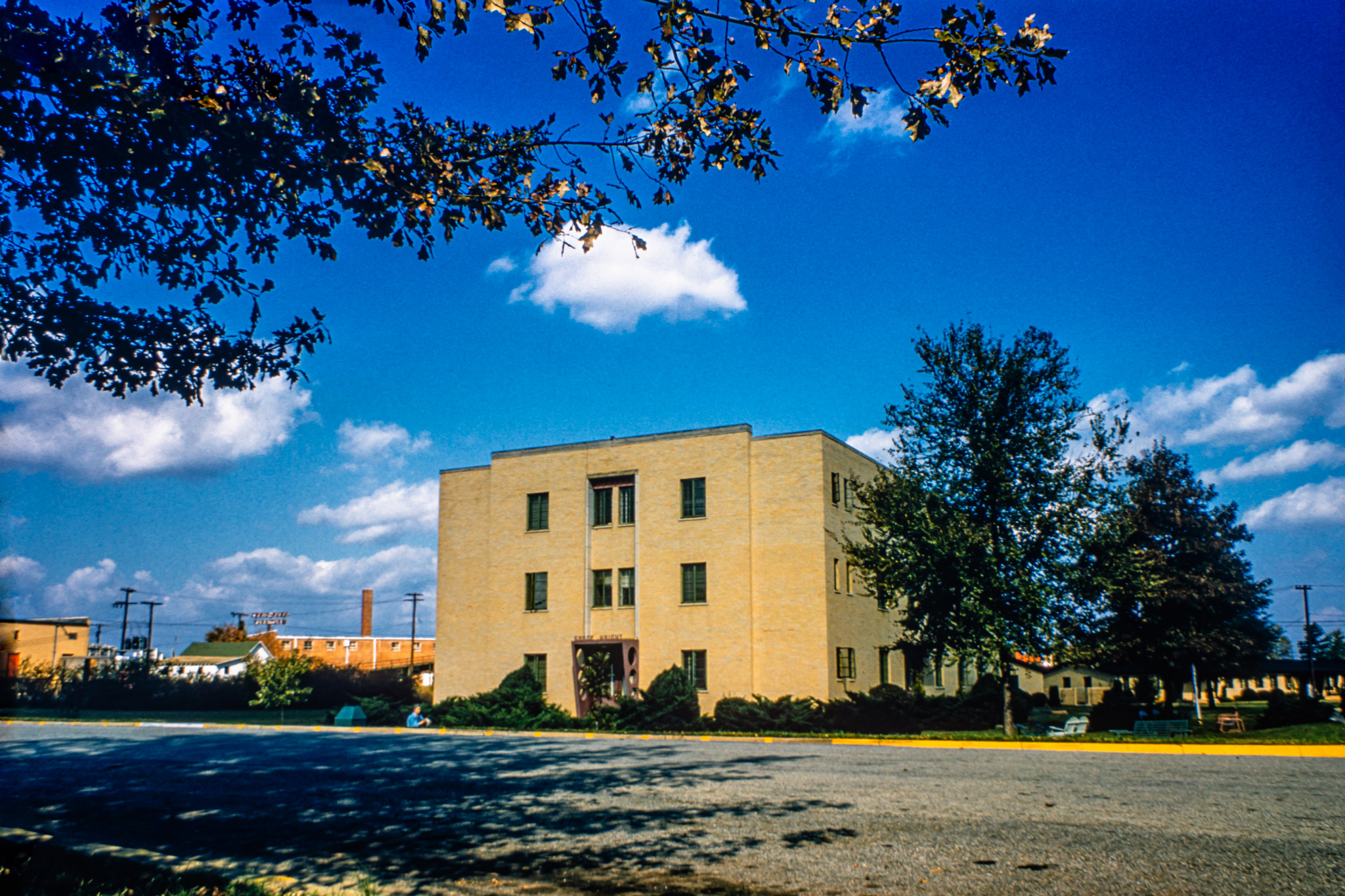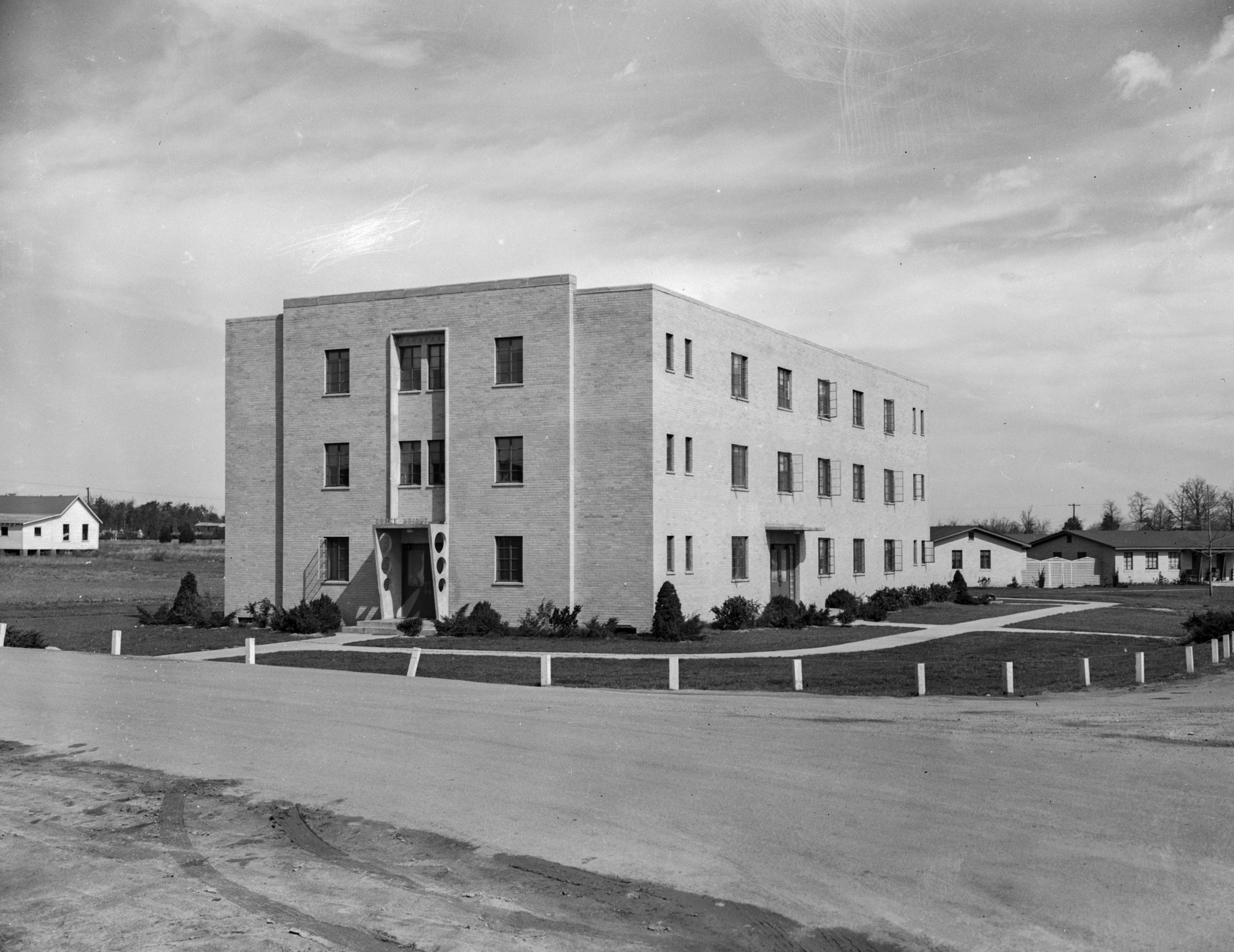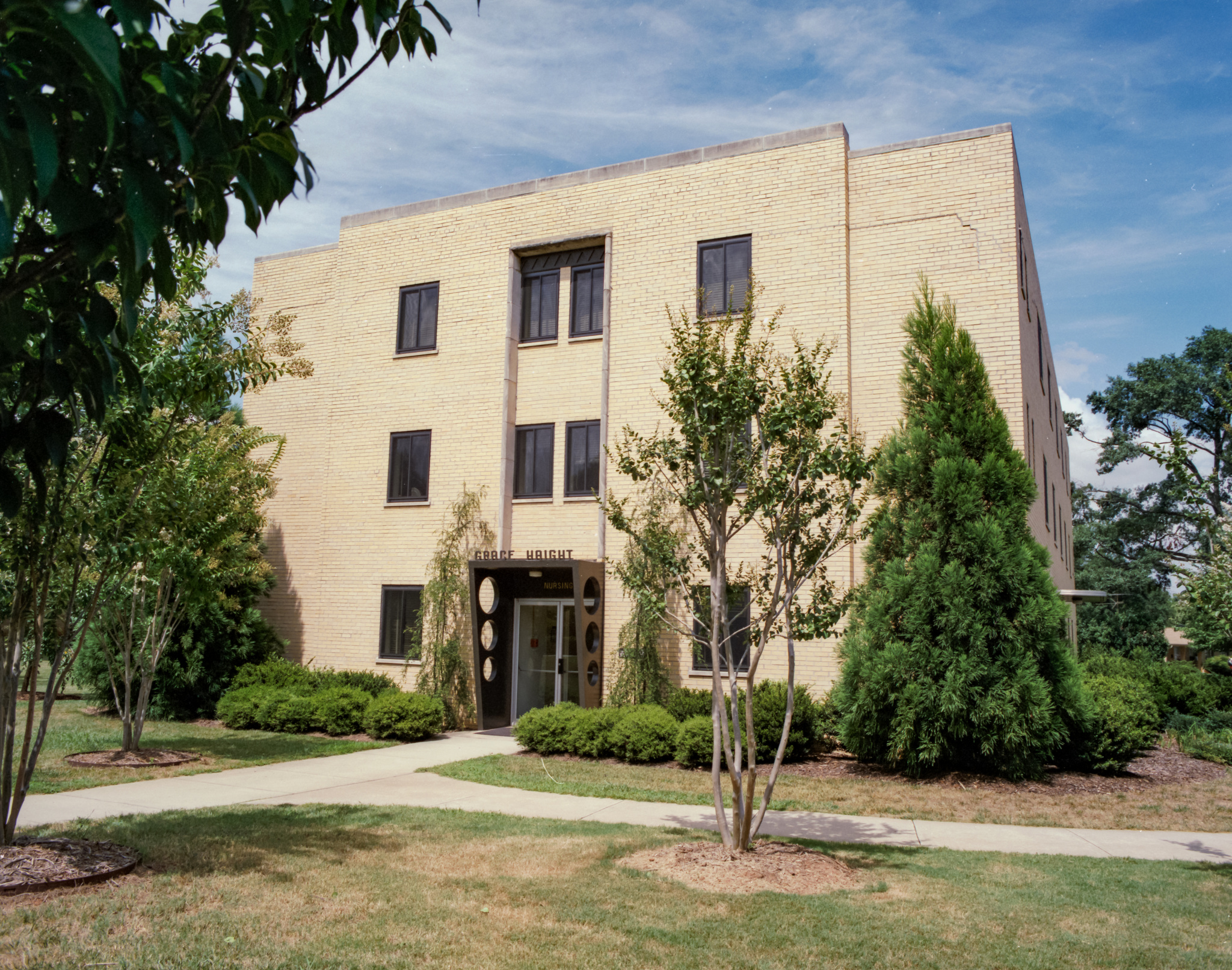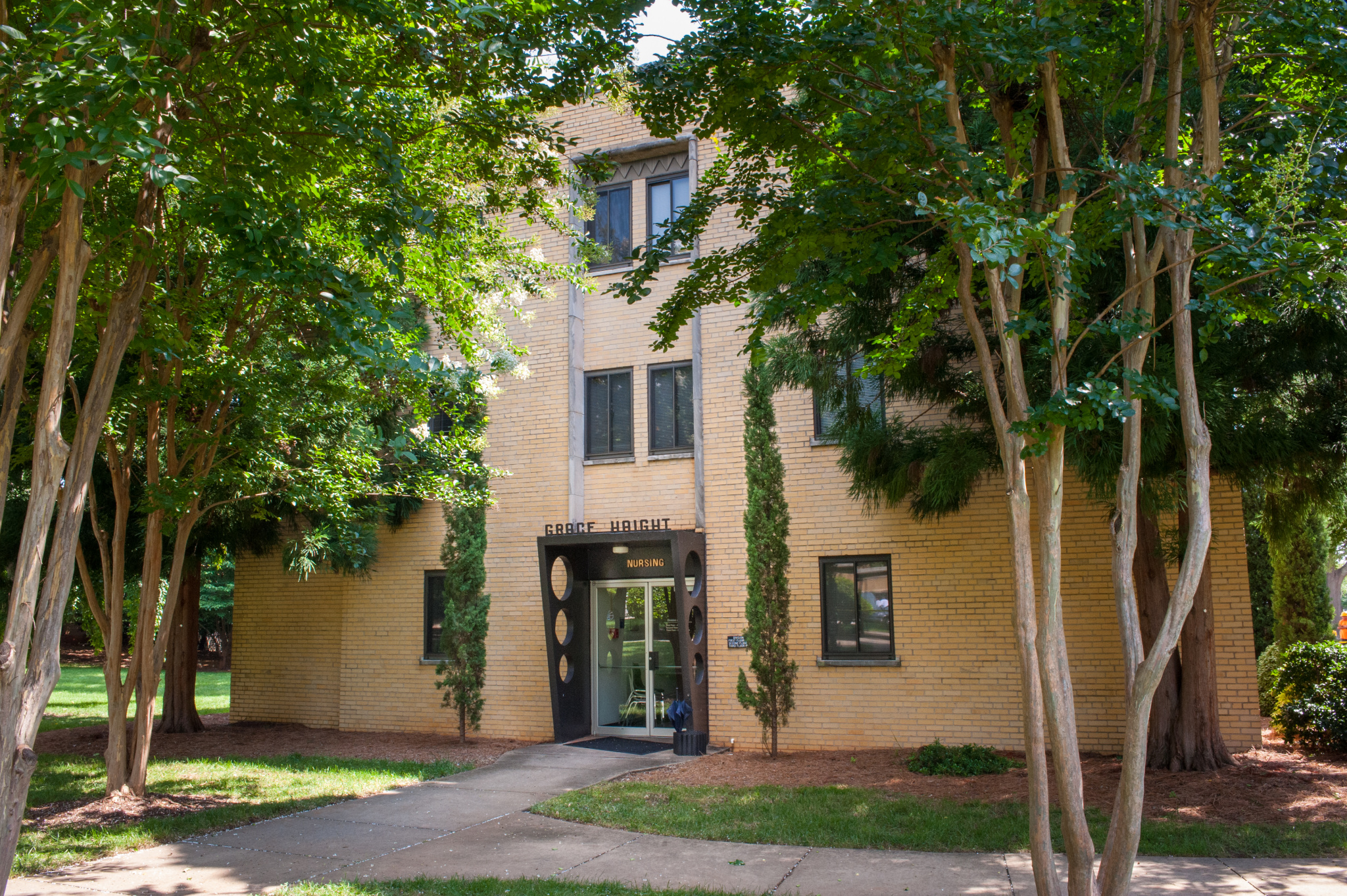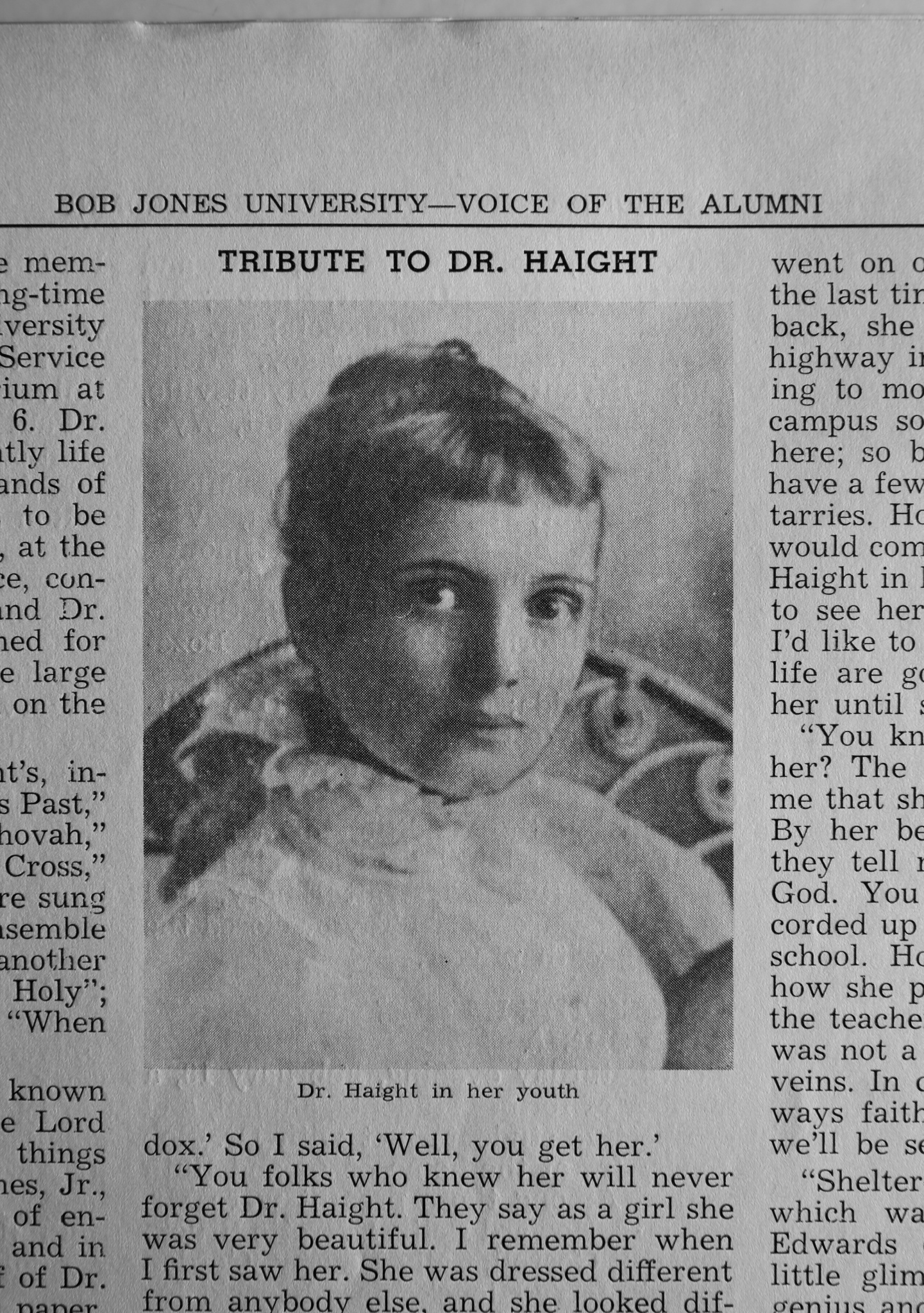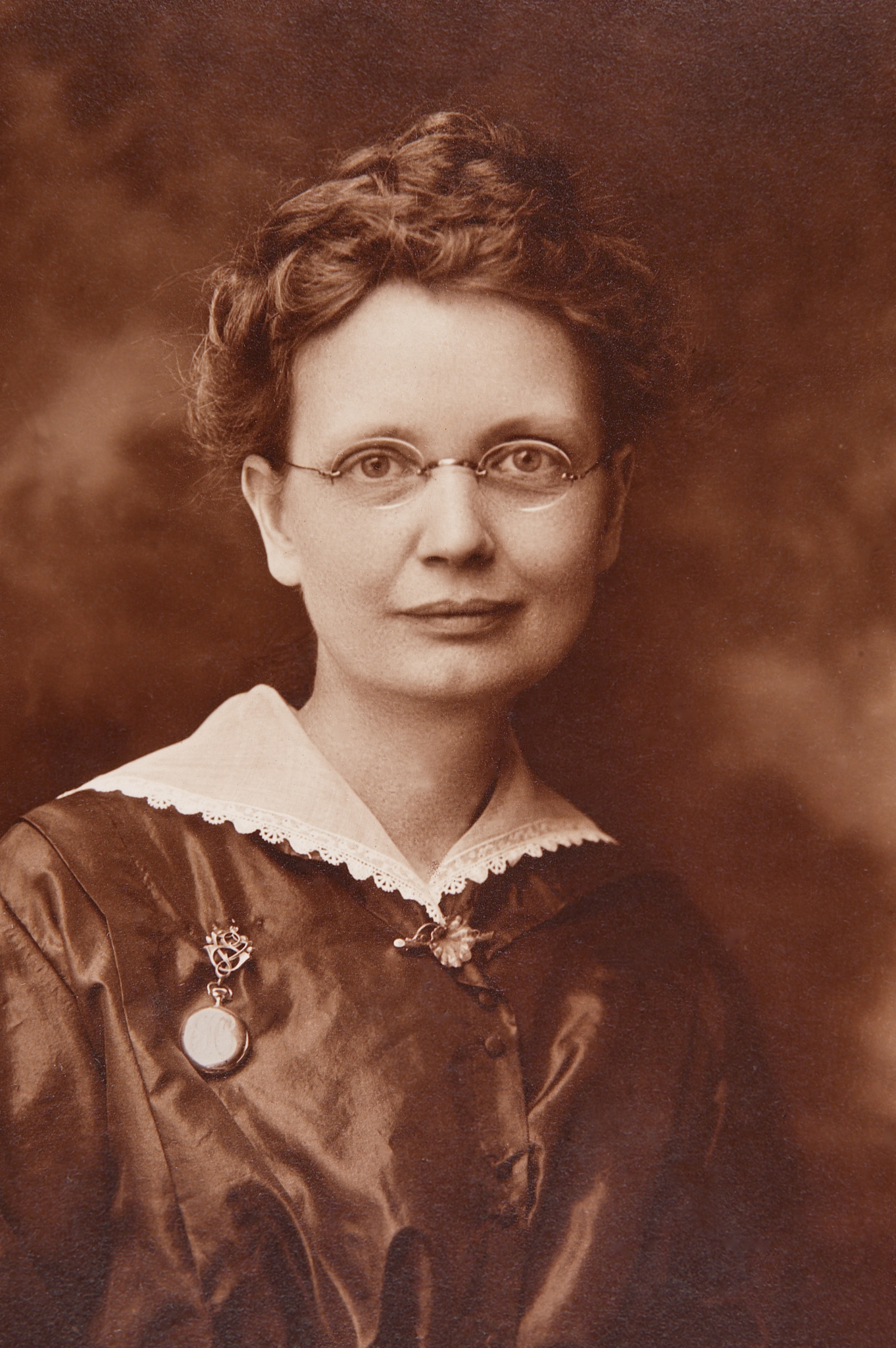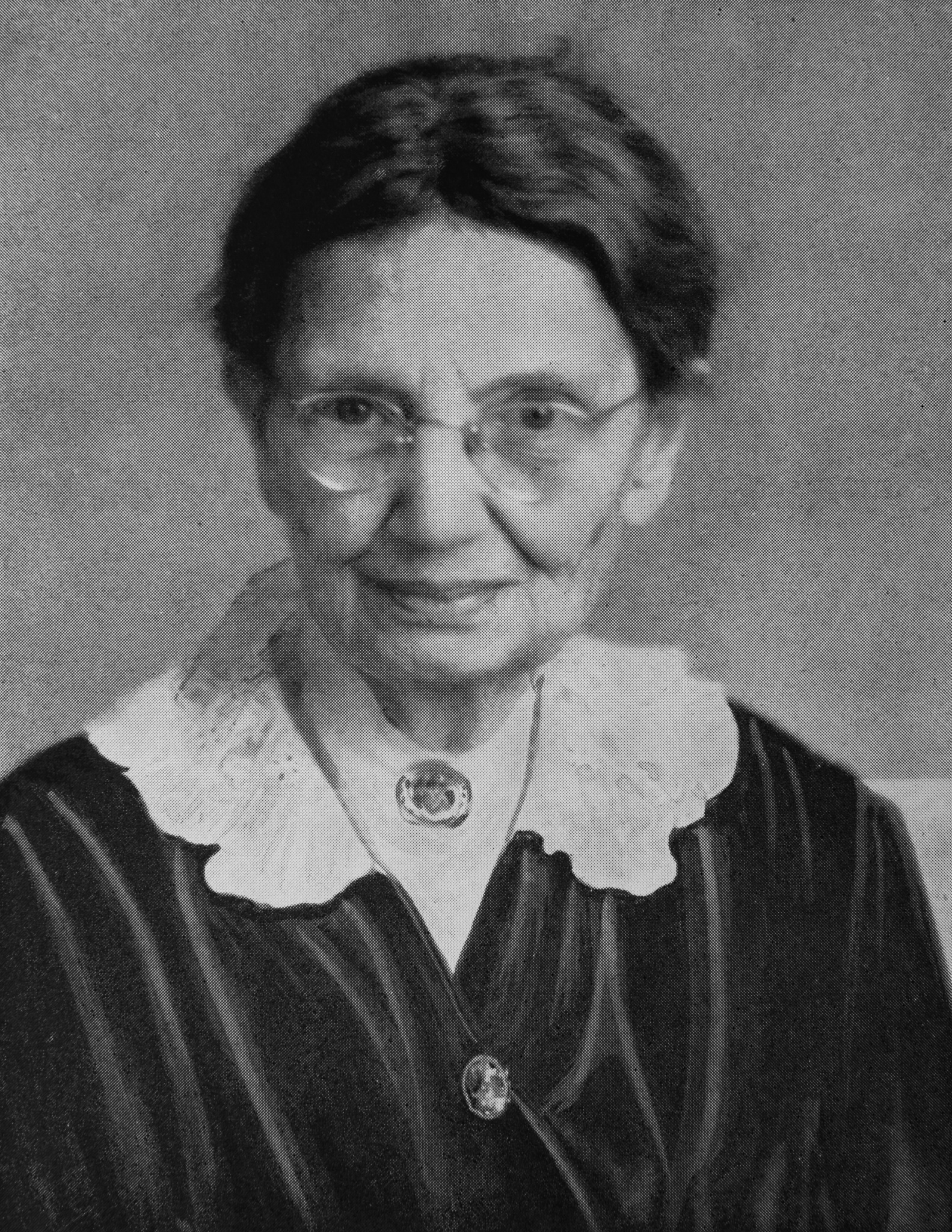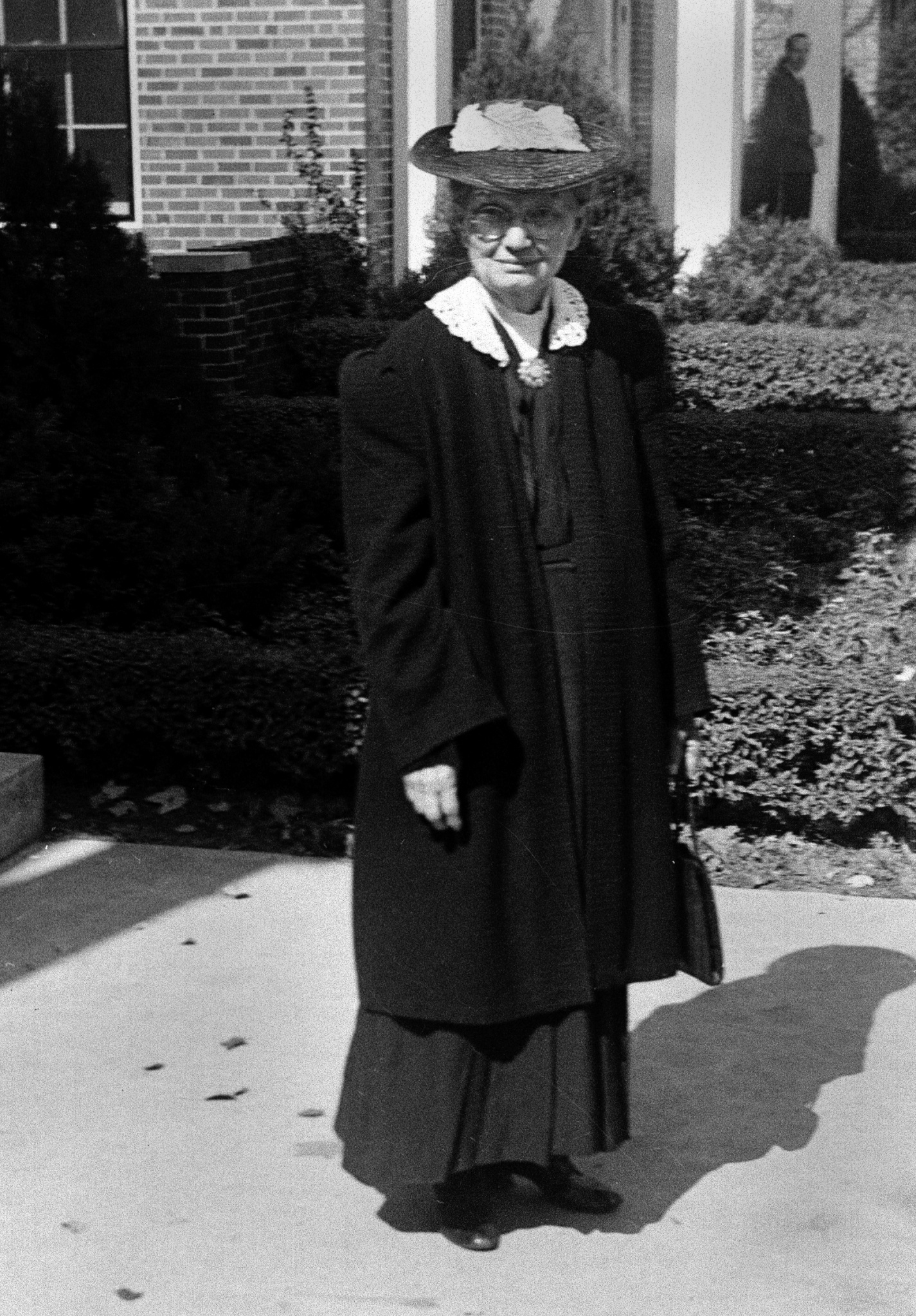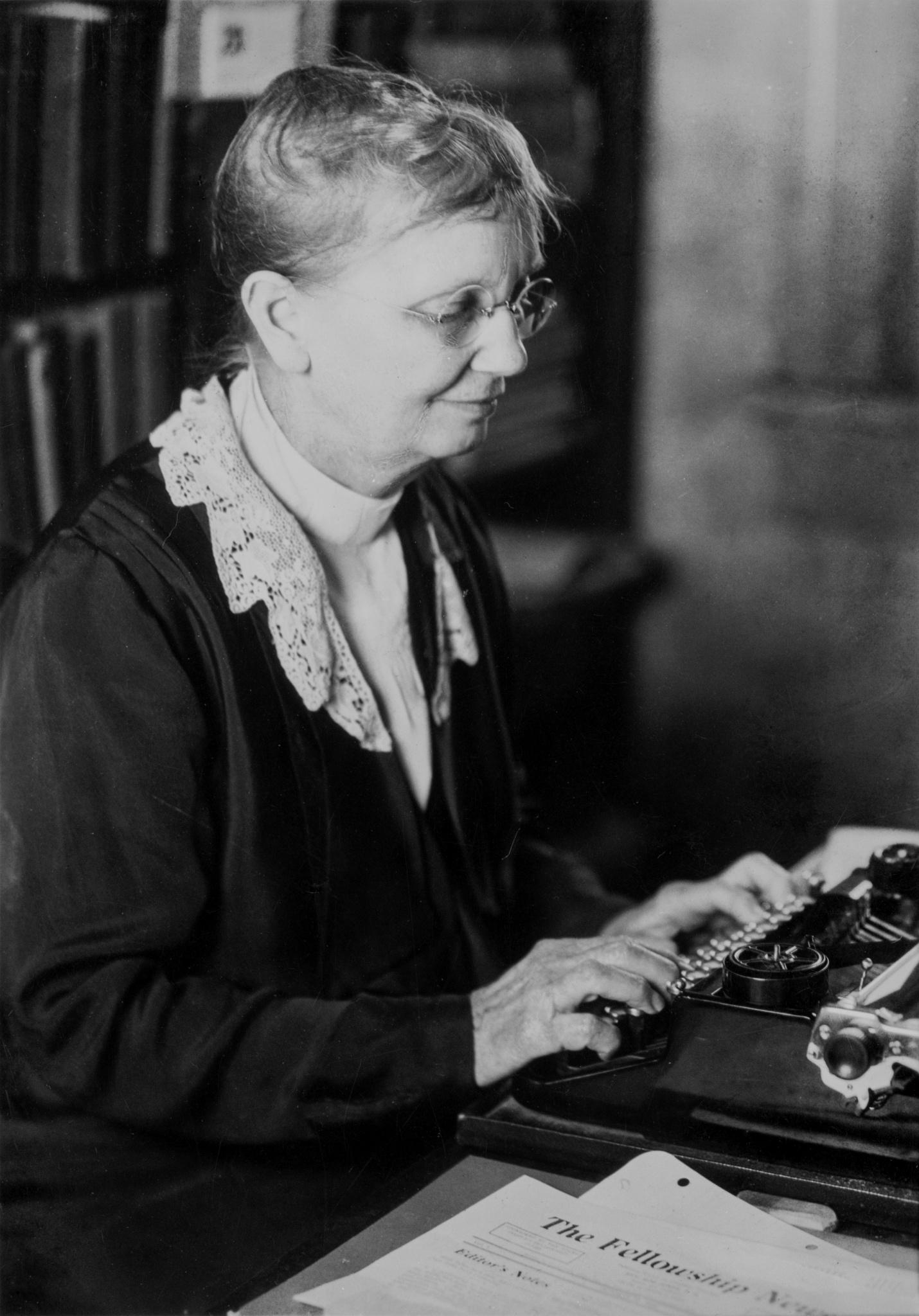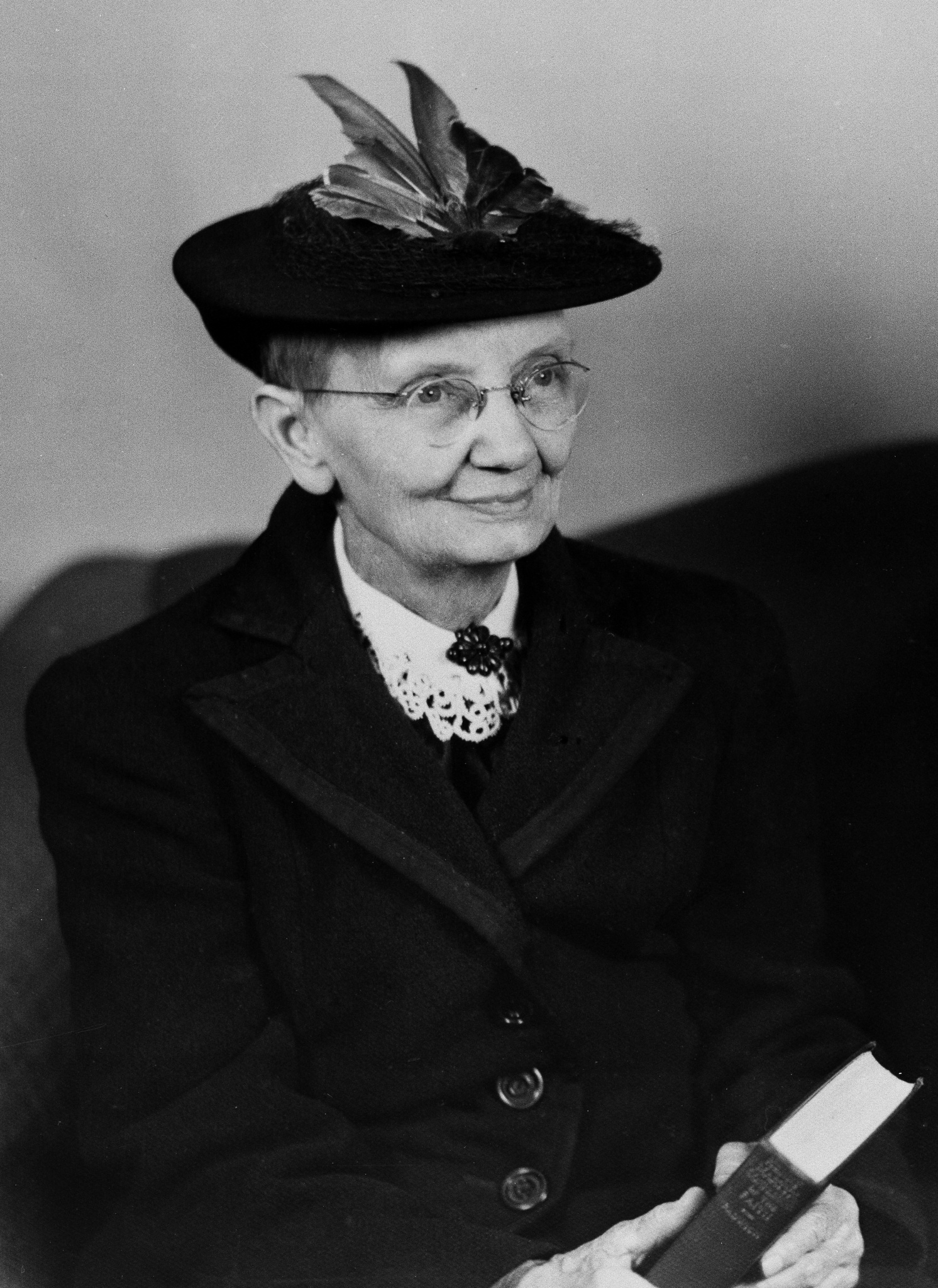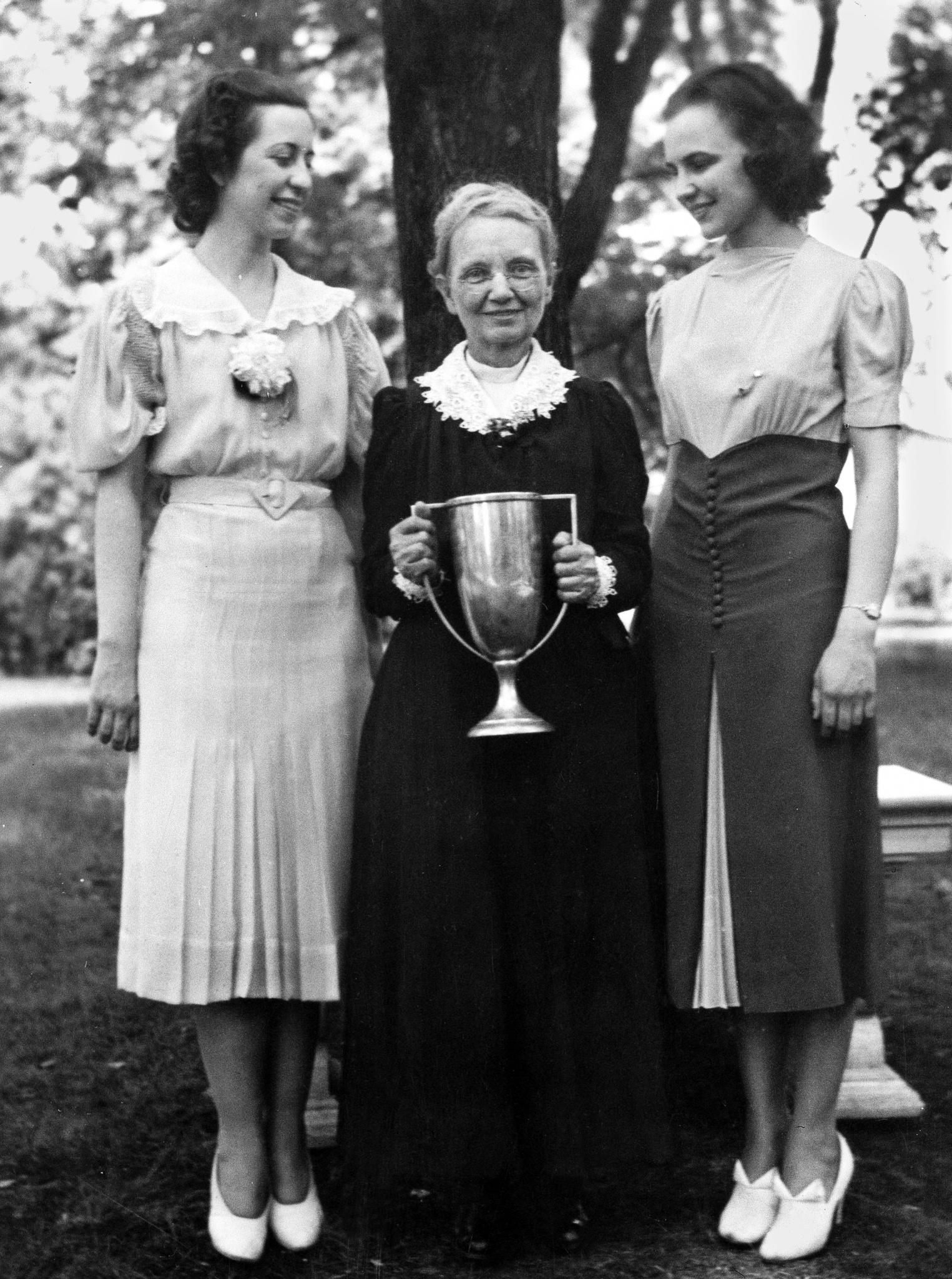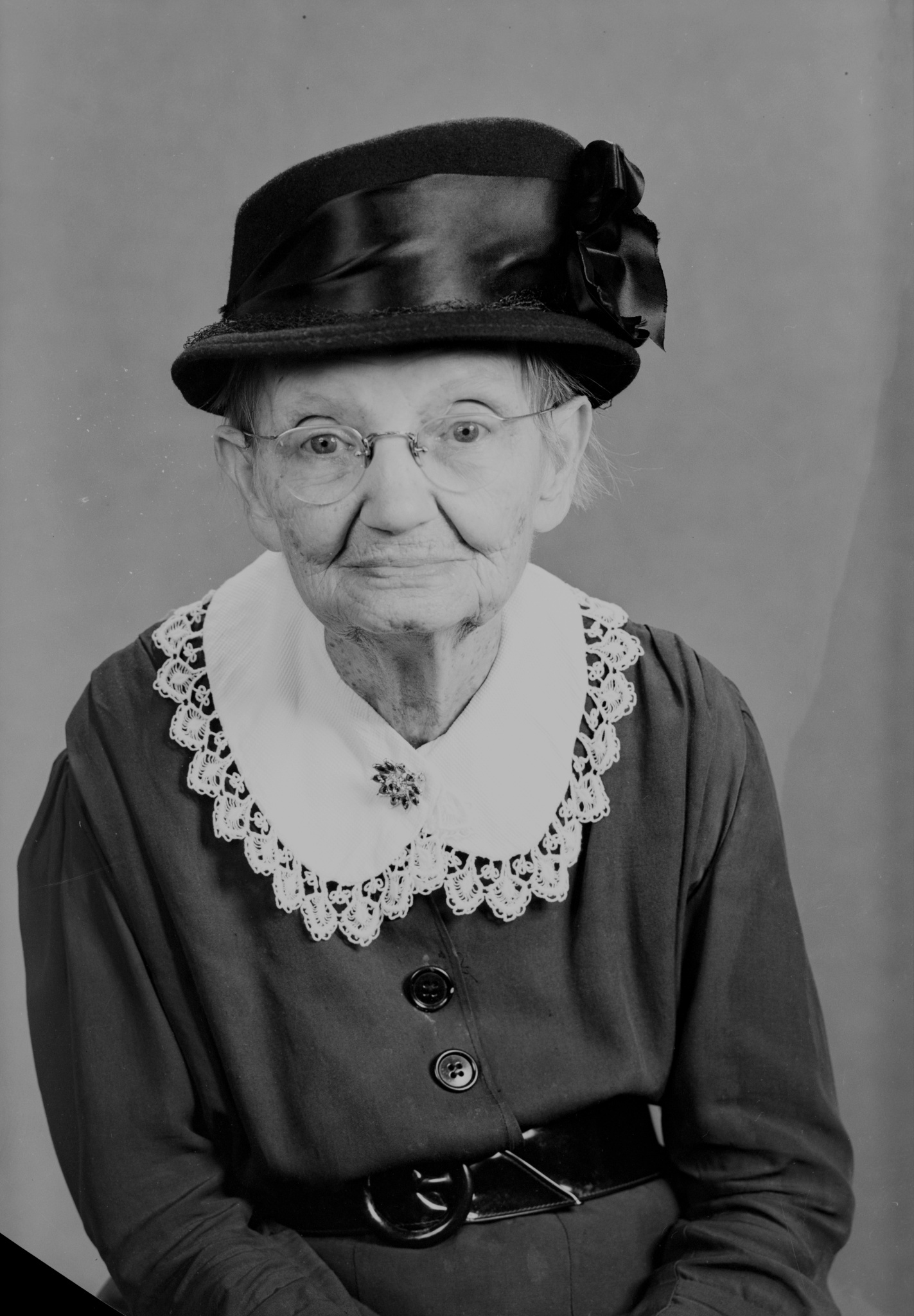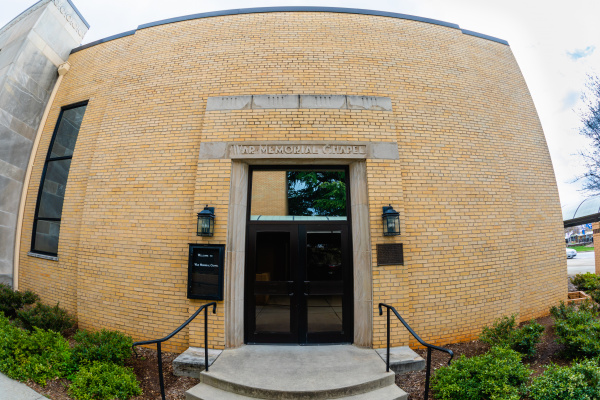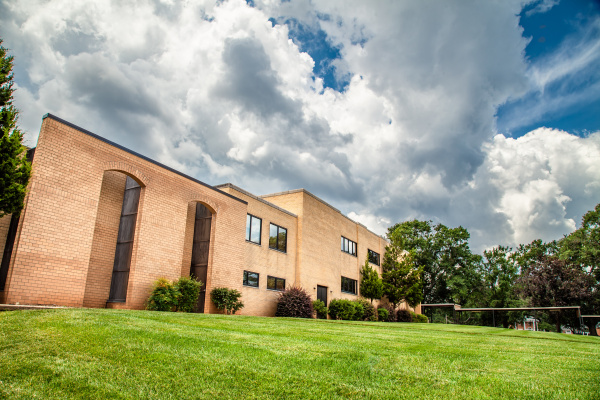The Grace Haight Nursing Building has been part of the campus since BJU moved to Greenville in 1947, and its uses have been diverse.
The building was first used for faculty housing. Single women, including Grace Haight, doubled up in single rooms. Young couples also stayed there for a time. Dr. Gail Gingery, former voice faculty, told history professor Dr. John Matzko in an interview that as a “married couple, both (being) musicians, they received two 12 x 18 rooms. In one they installed their grand piano and a refrigerator; the other was divided between bedroom, bathroom, and kitchenette. (His) wife used the living room as her piano studio.” After Campus View Apartments was built in 1968, the building became a women’s residence hall.
Once Mary Gaston Hall opened in 1977, the Grace Haight building transitioned to other uses. From the summer of 1977 until 1979, TV Ministries occupied the back half of the first floor, with walls removed to accommodate offices. During this time the building was also home to music studios.
Bob Jones Elementary School, which was founded in 1970, experienced much growth in its first decade. Before the current elementary building was completed in 1981, the school was pressed to make creative use of spaces on campus. Melva Heintz, the Bob Jones Elementary School’s first principal, said, “We ended up having our third grade classrooms, finally year by year, covering the entire first floor level of Grace Haight Building.”
Several years after the bachelor of science in nursing degree was first offered in 1979, the building became what it is today—the Grace Haight Nursing Building. The building received extensive renovations over the summer of 1991. In 2020, the building will serve in another capacity to be determined when the nursing program moves to the new School of Health Professions building for the first semester.
See Also: Providence and Timing: A History of BSN Program
The Little Lady Herself
Grace Woodman Haight, the middle of three children, was born on September 22, 1863, in Springfield, Massachusetts. Soon after, her family—“prominent” in Massachusetts as well as descendants of Puritans—moved to Louisville, Kentucky.
Although not much else is known about Haight’s early life, she served in Louisville for many years. She spent 16 years running the Sunday school primary department of the (later) Temple Church. For 14 of those years, she also oversaw the church’s Juvenile Missionary Society.
Grace Haight’s Missionary Years
Her father having passed away in 1904, the death of her mother in 1916 left Haight ready for her next step in life. (No, it was not nursing, nor would it ever be.) In 1917, she traveled to China with other missionaries as a “missionary helper,” supporting herself with money her father left her. Upon arriving, she realized the missionaries did not believe and teach the true Gospel of Jesus. However, she held to her faith and remained for five years teaching middle school boys in Shanghai.
Haight served in China until a missionary friend in Egypt wrote asking for Haight to join the work there. She traveled down to where the Nile Valley Mission Campaign was operating a mission boat. For the short time she was in Egypt, Haight sent out monthly pamphlets about the boat mission, similar to missionary letters. She also participated in the outreach, which she wrote aimed “to give every person along the river at least one chance to hear the Gospel story.”
A day on the mission boat was busy. After spending the morning in corporate Bible reading and prayer, up to 14 missionaries would go out in pairs to the Islamic villages and cities. Often, they went to mud-walled homes with their black, red and white wordless books. There they experienced local life, drinking thick, overly sweet coffee and sitting inside where animals also resided at night. Sometimes the missionaries even spoke to crowds, despite the risk of persecution.
As the season for the mission boat was ending, Haight received what she referred to as “two disquieting letters from home.” She soon set sail for America, closing another chapter of her life.
Years with The Southern Methodist
Haight arrived home on July 24, 1923, only to find that her return was not necessary. But during her journey, she had contemplated and hoped to assist in the work of The Southern Methodist. This journal—first published by Rev. R. A. Meek in October 1921—was begun “to resist in the Methodist Episcopal Church, South, the encroachments of modern liberalism” (Vol. IX No. 37). Just a week after her arrival home, the paper’s assistant was caught in a fire at the office. God had opened a door, and Haight entered it. She applied to fill the position in Memphis, Tennessee and joined the paper in September 1923.
God had prepared Haight to fulfill her duties, such as reading proofs, preparing for printing, writing articles, and handling the paper’s correspondence, to name a few. She wrote that, while in Shanghai, she had “drifted into teaching, all unknown to myself that God was polishing me up on grammar, punctuation and rhetoric and getting me ready for service on this paper, and stiffening my character for what lay ahead” in writing on this controversial topic. The final issue declared “her record of service is deserving of the highest praise.”
Because the paper was not accomplishing its goal of saving the Southern Methodist Episcopal Church from modernism, the paper closed after its last issue, published in June 1930.
Bob Jones Meets Grace Haight
Even though the paper was discontinued, God had a plan for Haight. Because of her reputation as an orthodox woman, Dr. John Floyd Collins—Bob Jones College’s English and Latin instructor—told Bob Jones Sr. about Haight, saying that she “would be an asset to this school.” Jones, however, had doubts. “I remember when I first saw her,” he said. “She was dressed different from anybody else, and she looked different from anybody I had ever seen.”
With her almost floor-length dresses and an outdated hat and wig to hide thinning hair, she was unattractive and antiquated. Upon seeing her reflection, even Haight herself said, “You are the homeliest looking person … I ever saw—but you used to be stylish!” And it was, in fact, said that she was beautiful in her youth. But in her defense, she claimed that she wore her long dresses “not because (she was) old-fashioned, but because (she didn’t) have nice ankles.”
One could say that Haight stood out in a crowd, but likely it would be impossible to see her in one. A university publication best described her as “barely a wisp of a person” because of her size.
Despite his first impression of her, Jones asked Haight to join the college in 1930.
Service at BJU
Jones wanted Haight to serve in two ways at the college. First, he wanted her help with a weekly paper called The Fellowship News. This paper would combine news about the Gospel Fellowship Association and the Young People’s Fellowship Clubs. With her experience, Haight could help him set it up and then co-edit when it went into publication in 1933.
Jones also wanted Haight to join the faculty at College Point, Florida. She began in 1930 as a special instructor, and she eventually taught missions and hymnology.
Haight’s knowledge of the history of hymns was an asset to the school. Not only did she teach the hymnology class, but she also wrote a weekly column on hymnology in The Fellowship News.
Because she knew the history of so many hymns, the college awarded Haight an honorary Doctor of Literature degree in 1934. Being the humble person she was, she responded to this honor by quoting Shakespeare: “Some are born great, some achieve greatness, and some have greatness thrust upon them.”
Greatness was again thrust upon her when the campus moved from Cleveland to Greenville. When she saw the building that Jones had named for her, she said, “Dr. Jones should not have done that. I just don’t deserve it.”
Haight faithfully taught at the University until she was almost 90 years old. Around that time, because of her age and physical capabilities, she was encouraged to discontinue her position at The Fellowship News. She could not bear being idle or feeling unloved, so she announced, “Well if I can’t be any use here, I’ll go back home to Louisville and work with the poor people there.” With reassurance that she was still crucial to the paper, she was persuaded to stop packing her bags and stay at BJU.
One night, working late on the paper as she typically did, she fell and broke her hip. She lay unconscious on the floor most of the night until faculty member Grace Levinson found her. She stayed in the hospital on campus for the next seven weeks until she passed into glory on August 9, 1955. A memorial service—originally planned for September—was held in April during Bible Conference so that visiting alumni could attend.
Recollections of Grace Haight
Haight was influential and memorable to both faculty and students.
Humor
Despite her stiff appearance, Haight had a sense of humor. Once when someone knocked at the door during prayer, she prayed, “Just a minute, Lord. The Devil’s at the door,” only to find Bob Jones Sr. outside. She also spoke bluntly. She was not afraid to pay a visit to someone and truthfully declare, “I didn’t come to see you. I came to pay my respects to your cat.” Grace Levinson said of her, “She didn’t mean to be funny—she just was.”
Writing
Haight is also remembered for her writing—her work in the papers she edited and her poetry. Along with individual poems, she wrote a book of children’s poetry called Cathie Remembers. She also wrote the Bob Jones College Hymn within a few years of arriving at the school (not to be confused with the current Bob Jones University Hymn). A University publication said that “her poetry and writings not only reflect the beauty of her soul, but also the diversity of her mind.”
Giving
The beauty of her soul was also seen in her generosity. She donated to missions and to the school. When Bob Jones College moved from College Point to Cleveland in 1933, she gave $3,000 in bonds for moving costs—today’s equivalent to $59,000.
Haight gave money to students. For example, she paid young men to maintain the grounds—also an attempt to keep certain ones out of trouble. Sometimes she also slipped a little money under girls’ doors at night.
Haight loved to buy things for others as well. Corretta (Johnson) Grass—named Corretta Grace after Haight because of the Johnsons’ close friendship with her—remembers Haight’s persistence in gift-giving:
(One time) I did something wrong. … This particular time I have no idea what it was, but (Dr. Haight) went to my mother and told on me. So, I was to be punished, and then Mother said, “Now, we’re taking Dr. Haight this afternoon to the ten-cent store, and she always buys you something. You may not have anything. Not anything to eat, not a gift, not anything. And I’m telling you before we go (so you know) when it comes up.”
So of course, as soon as we got there, Dr. Haight starts taking me to all of these places, and—I remember this very clearly—I’d say, “No thank you, Dr. Haight, no thank you, Dr. Haight.” I didn’t want to say why, and finally she says, “What is the matter with you? I want to get you something!” And I said, “Well, Mother says that I can’t have anything because you told her that I was bad, and this is my punishment.”
And she marched right over to Mother and said, “Now Guye, this has gone far enough. Now I’m going to buy her something,” And mother said, “Now Dr. Haight, if you’re going to tell me things she does and I punish her, then you have to help me support this.” So, Dr. Haight wasn’t very happy that day, and I don’t know if she ever told on me again!
If Haight was not buying things for others, she was giving away her own belongings. If someone complimented her on an accessory she wore, she would give it to that person immediately. Likewise, when she received gifts, she would soon after give them away to friends. In fact, so that she would not give away a Scofield Bible—a gift for her 80th birthday—a poem was written inside:
To give you a present is most dissatisfactory,
For you pass it along with exceeding alacrity.
If this gift you give away,
None there’ll be next birthday!
In love and devotion this wish we send,
A long life of joy and peace without end.
All this she did while refusing to be paid for her service at the school. R.K. Johnson—former business manager—wrote of her, “She said she was thankful to God for the privilege of being in such a wonderful atmosphere (that) she felt . . . she was the one who should pay.”
Prayer
Haight was best known as a prayer warrior. Every morning by 5 a.m., she rose to pray. After spreading out her maps marked with missionaries, she knelt for hours on the worn rug by her bed. Everyone who heard her pray noticed how simple and direct she was when talking to God.
Her faithfulness in prayer led her to be very involved in the Mission Prayer Band (now Missions Advance).
She prayed her whole life, even on her deathbed. And after she was gone, thick calluses were found on her knees from years of kneeling on the concrete floor.
What more can be said about Grace Haight? Nothing other than she poured herself out in service. Her motto was non recluso ex labore—“I will not draw back from work”—and this she lived out faithfully for the Lord until her last breath.



